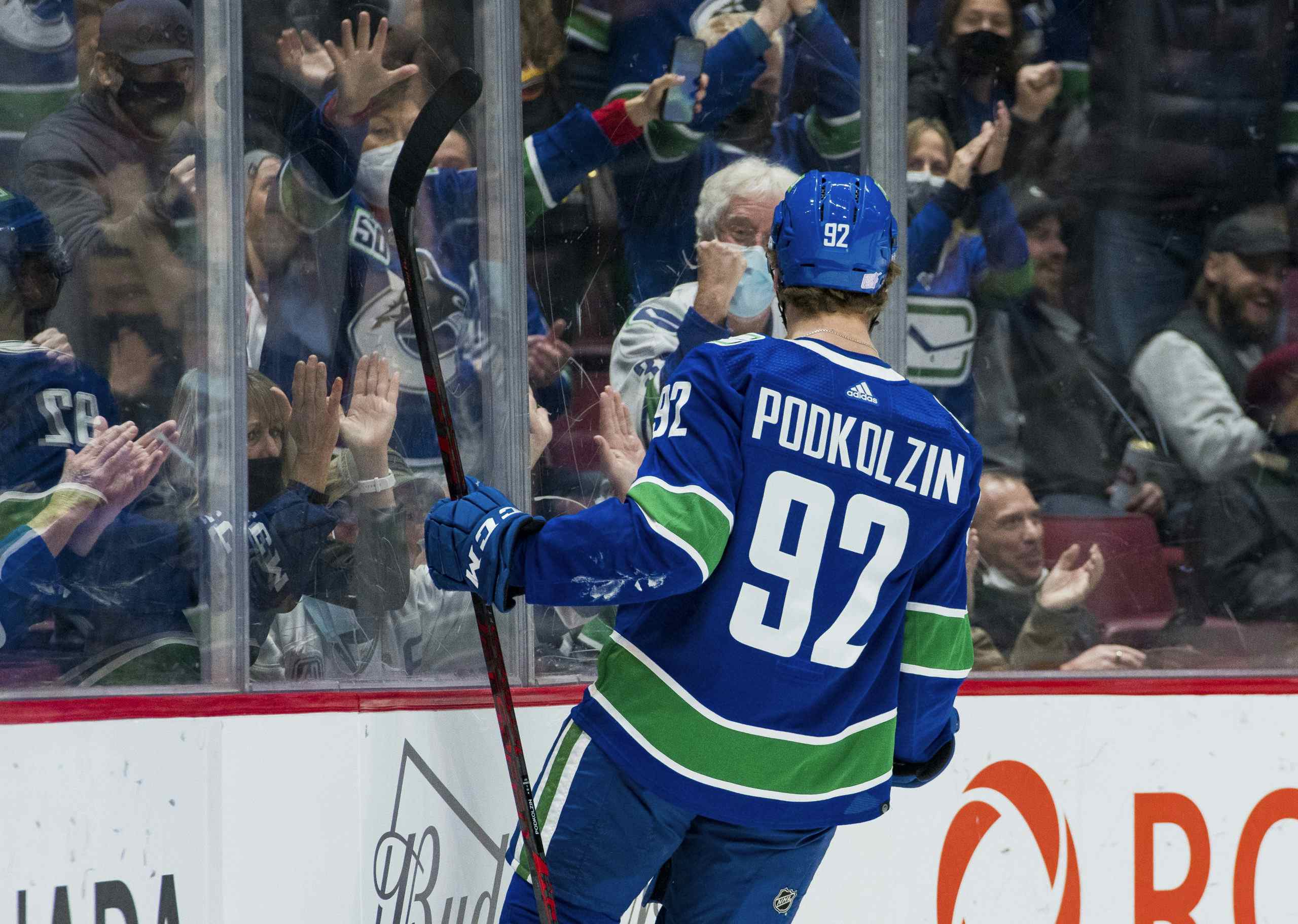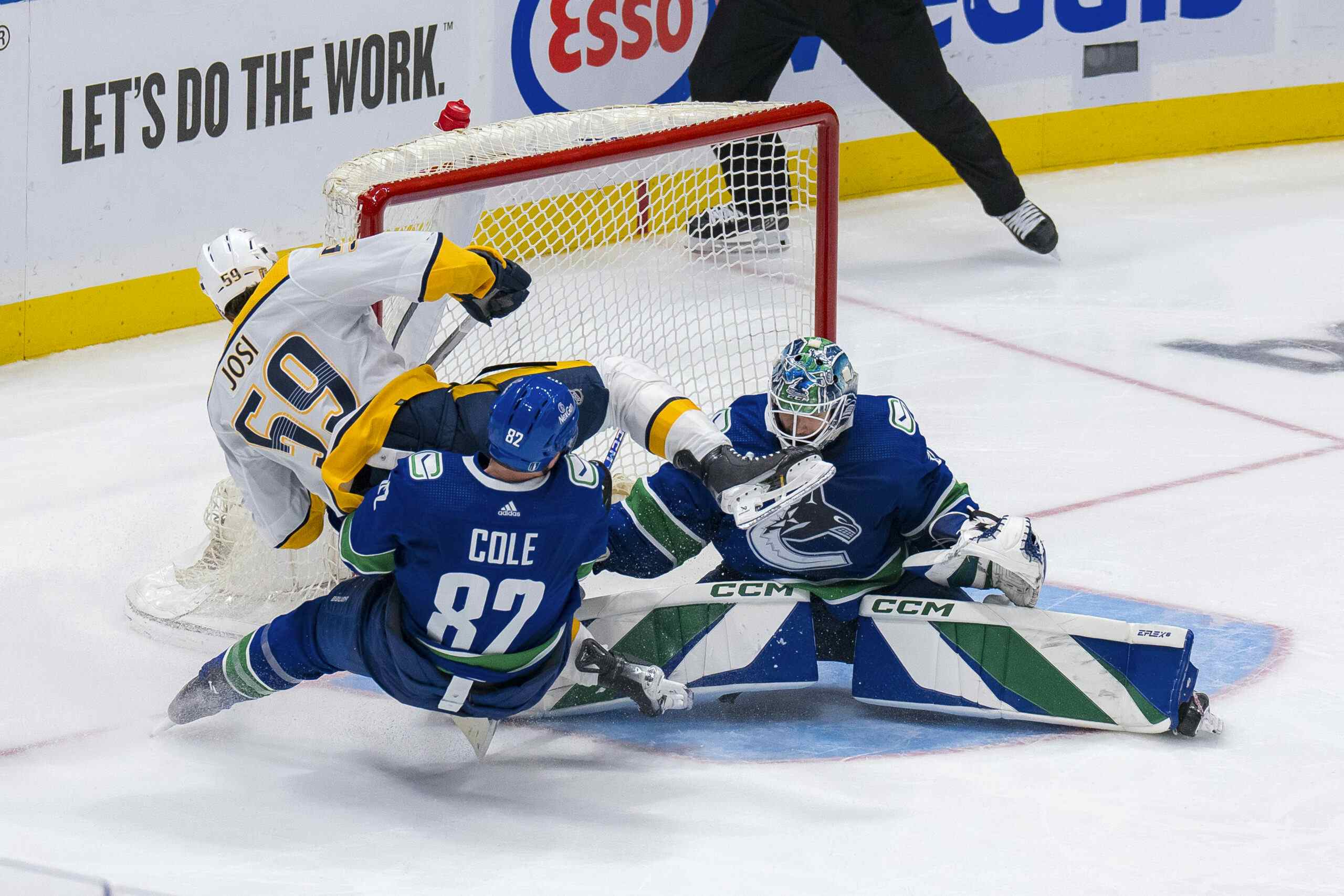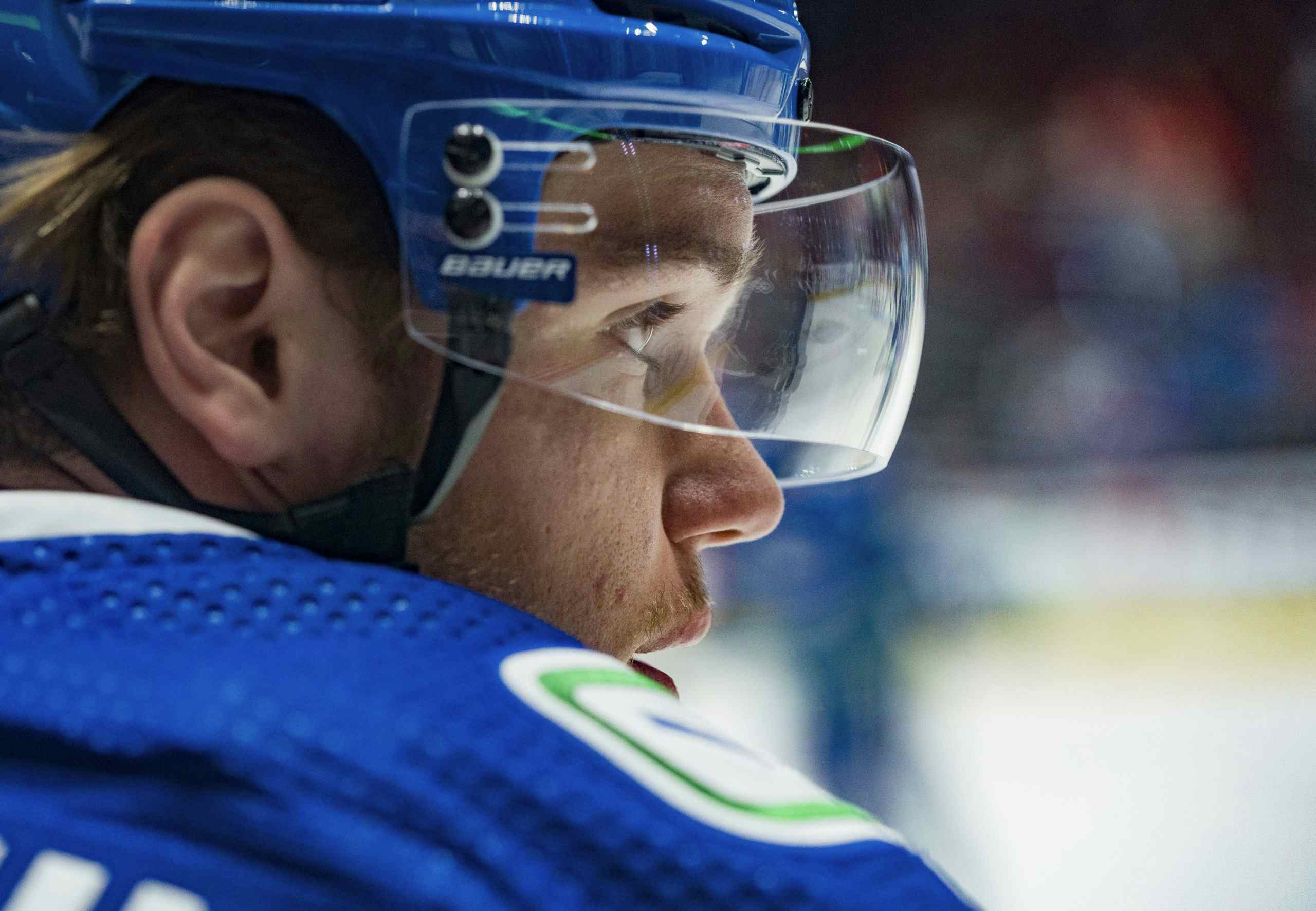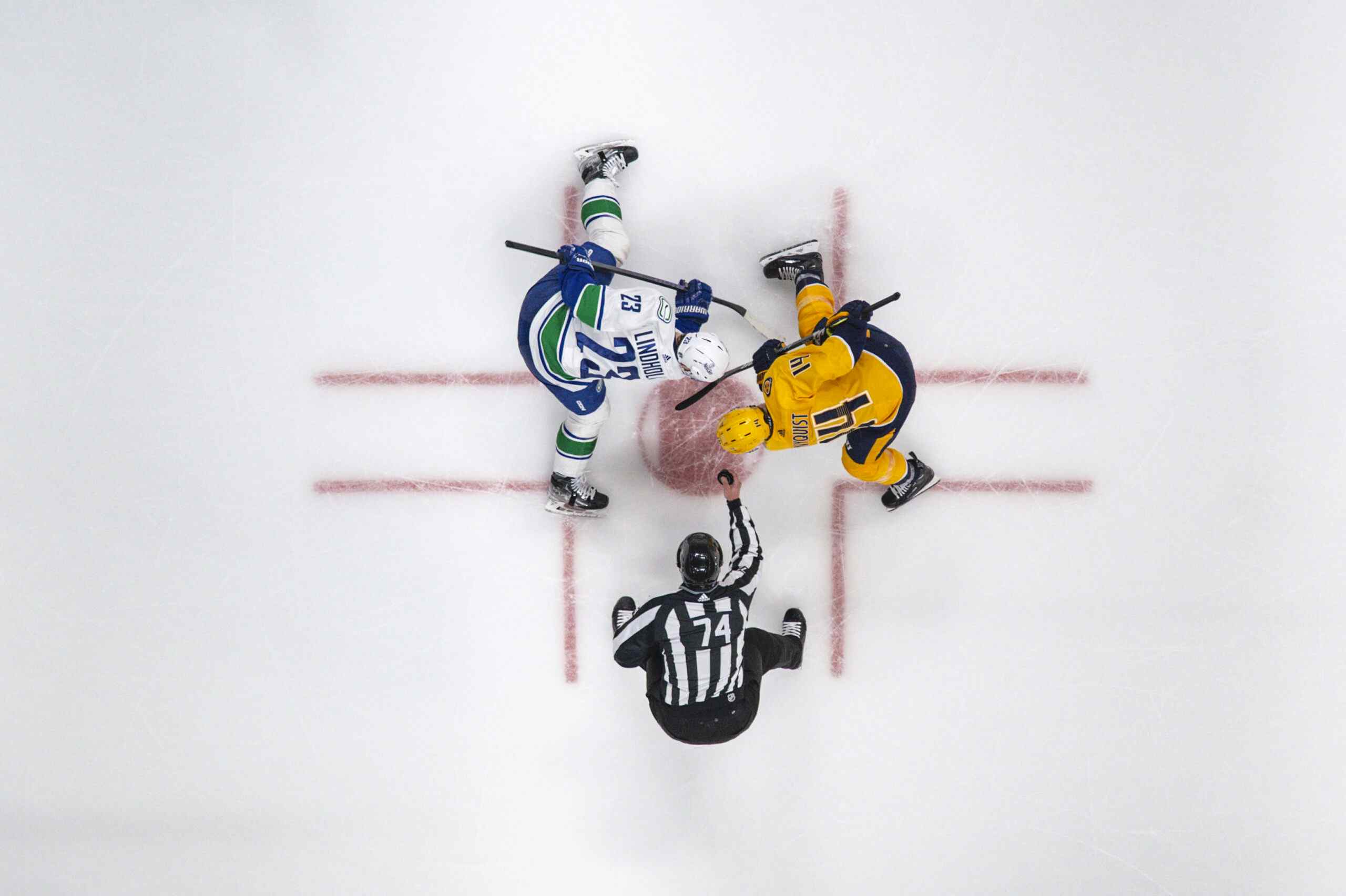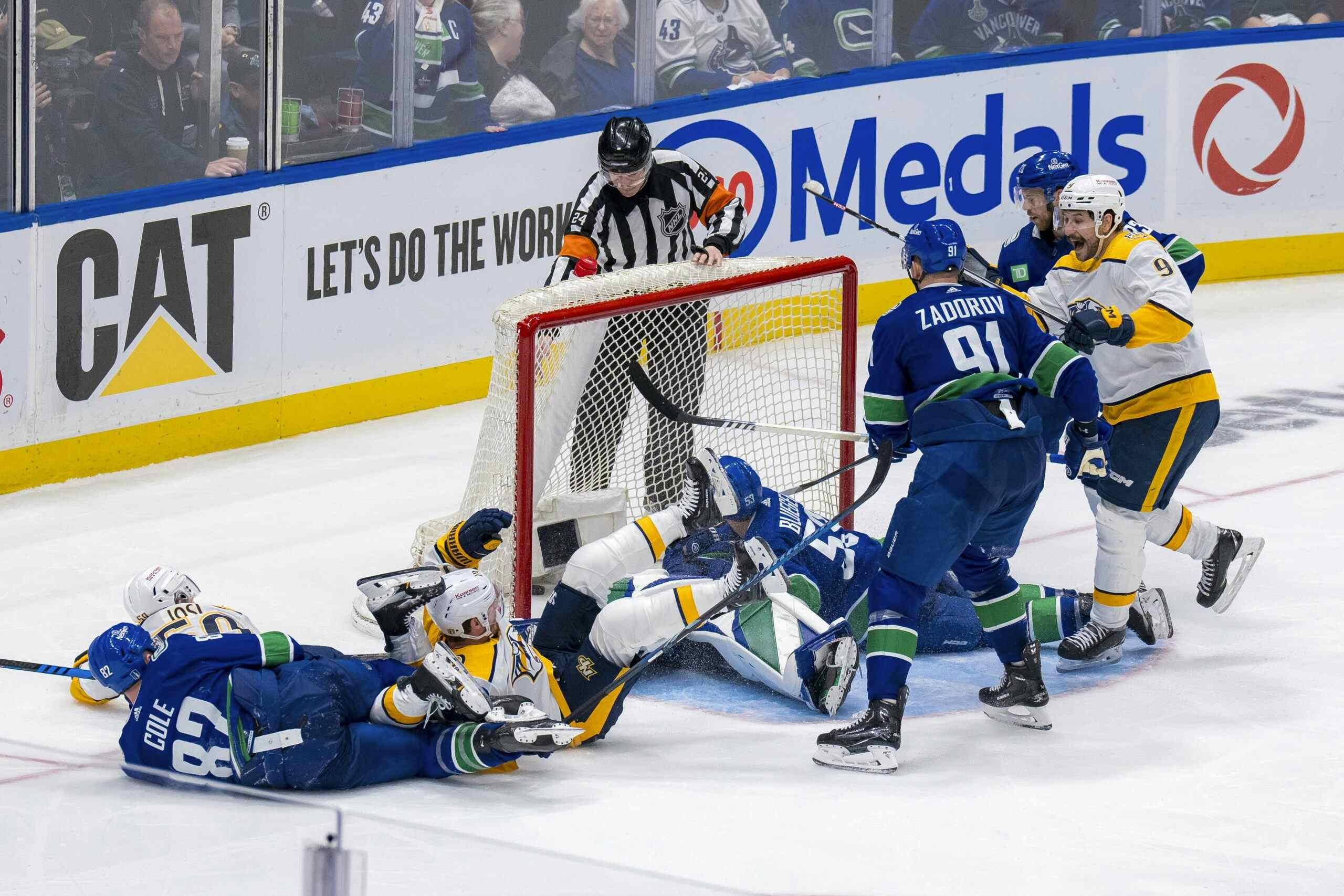Canucks Army Year In Review: Ben Hutton
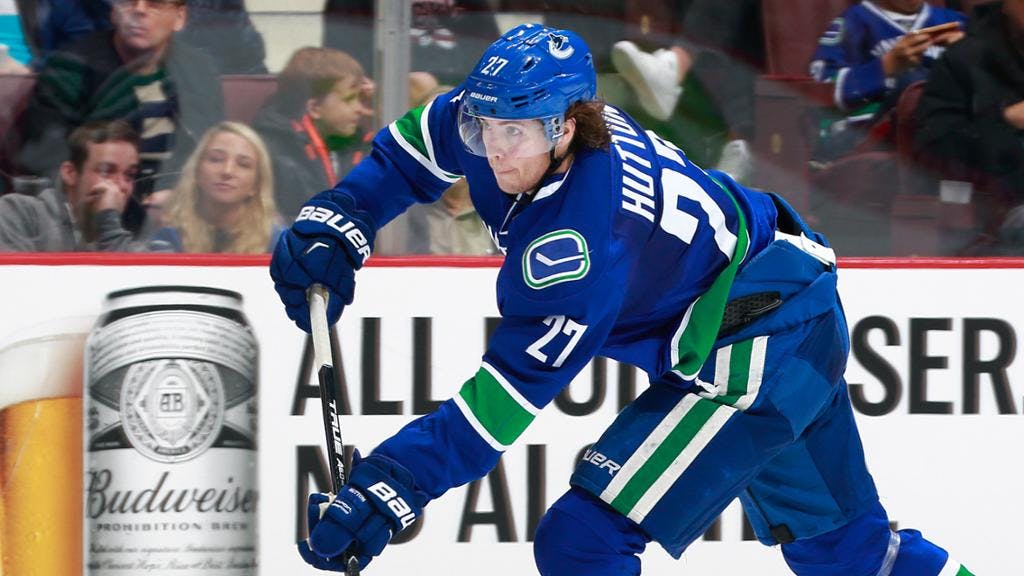
5 years ago
Ben Hutton has been one of the most divisive Canucks players over the past two seasons. Having seemingly come out of nowhere in 2016 to lead the Canucks defence in scoring (albeit with only 25 points), Hutton has struggled to live up to the hype since; with his production and ice-time plummeting in his most recent campaign under new head coach Travis Green. Some of the criticism he’s received is deserved, but there have been other factors at play that have coloured his perception in this market over the past year or so.
| Player | GP | G | A | P | S | CF% | GF% | CF60 | CA60 |
| Ben Hutton | 61 | 0 | 6 | 6 | 103 | 48.95 | 44.26 | 51.95 | 54.18 |
For what it’s worth, Hutton was more or less the same player this year as he was in his rookie season, albeit with a little less opportunity and a lot less puck luck. His shot metrics were actually up by about a percentage point from where they were in 2016-17. The biggest change from 2016-17 to his most recent season was in the games played category. Hutton was a frequent healthy scratch for the Canucks, especially down the stretch, and his power play time per gam was cut in half from the levels he saw under Willie Desjardins. Hutton was the target of some pointed comments from Travis Green regarding his conditioning, which is obviously something those of us without access can’t comment on. Jason Botchford of the Province has suggested some people close to the situation believe those issues have been exaggerated, but the only people who will every really know the truth are Travis Green and Ben Hutton. What’s important to keep in mind is that even if the conditioning rumours are true, his season was fine. Disappointing, maybe, but far from the disaster it’s been portrayed as.
Something that’s often lost in any conversation about Ben Hutton is that the praise directed his way by the so-called “advanced stats” community is always in relation to the rest of the Canucks’ defence. It’s not so much that Ben Hutton is a great defender, it’s that there’s no reason he should be the focus of so much negative attention when the rest of the Canucks defence has performed so poorly.
Hutton has also flashed enough skill to make you wonder what he could do on a team with a better back end, especially because his performance has been tied so inextricably to the quality of his partner.
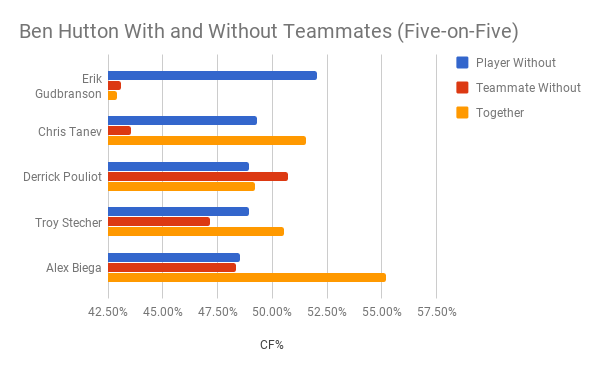
There’s an old adage in hockey that there are two kinds of “good” defenders. The first group are the truly gifted, who can carry a pair either through dynamism or expert defensive awareness. The second group is comprised of those who can play well and keep up with the first group. Even Hutton’s staunchest advocates would concede he’s part of that second group, and the numbers bear that out. It’s not exactly a difficult concept to grasp, but it bears repeating: when Hutton plays with good players, he performs well. When he doesn’t he struggles.
There was a section in Jason Botchford’s final edition of the Provies for the 2017-18 season that I thought summed up the Ben Hutton situation nicely:
Maybe the most confusing part is that the data all season has suggested Hutton is among the Canucks best defencemen.In fact, the only time he’s really struggled it’s been when he’s paired with Guddy.That Guddy acquisition is arguably the worst thing to happen to Hutton.Guddy or not, Hutton’s play on the ice never warranted the number of times Green made him a healthy scratch.“It’s seemed like an endless circle, there was always a new challenge,” Hutton said.“But adversity makes you stronger as a player.“I’m just hoping next year is a big year for me.”It may be best for everyone if that’s not in Vancouver because right now he looks like a player who could really benefit from a fresh start.
The relationship between Ben Hutton and the organization has completely deteriorated since the team acquired Erik Gudbranson. Obviously, it would be completely unfair to place the blame for Hutton’s disappointing development squarely at the feet of Gudbranson. I’m sure Gudbranson just goes out and tries to do whatever is asked of him on a nightly basis, and it’s not his fault he’s been consistently deployed on a pairing that hasn’t been beneficial to either player. But it’s also not a coincidence that Ben Hutton’s stock plummeted as soon as the team jettisoned Dan Hamhuis in the 2014-15 offseason.
Ben Hutton’s career trajectory serves as a cautionary tale about why you should never get too high or too low on a young player. Something that got last after his rookie season was that he was coming into the NHL after three years of NCAA hockey, at the age of 22. Physically, that’s much closer to an NHL player’s peak than a player who’s made the roster in his draft+1 or draft+2 year. Hutton also had the misfortune (or fortune, depending on who you ask,) of breaking into the NHL at time a when the Canucks had a dearth of prospects in the organization and had gone ages without a rookie defenseman making an impact. It’s funny, a lot of the voices who were responsible for overhyping him in the first place are now some of his biggest critics.
At 25, Ben Hutton has pretty much reached “he is what he is” territory, but there’s still room for him on an NHL defense. Over the course of his three-year career, Hutton’s posted his best results and looked most confident alongside puck-moving D, especially when they are reliable in their own end. The Hutton-Tanev pairing was among the best in the league this season in shot-suppression in their short time together. Perhaps Hutton as a first-pair defender seems a bit rich, but he also posted great results alongside Alex Biega in a third-pairing role. On a defence as poor as the Canucks, Hutton deserves another shot in the right role. It’s just not clear if that’s a direction the team is willing to go in.

